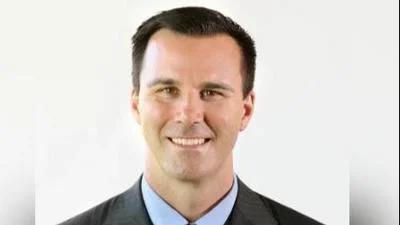Justin Beaton, former substitute teacher from Racine, WI | Provided Photo
Justin Beaton, former substitute teacher from Racine, WI | Provided Photo
The exoneration of Justin Beaton in a 2016 high-profile local Racine, WI high school case marks a significant turning point in media transparency. The revelation of Beaton's innocence from false State and media narratives has sparked a wave of introspection within media outlets, prompting a reevaluation of their reporting practices. In this article, we delve into how Justin Beaton's exoneration has reshaped the landscape of media transparency.
Embracing Accountability
Justin Beaton's exoneration serves as a powerful reminder of the impact of sensationalized or inaccurate reporting. Media outlets are now faced with the reality of their role in perpetuating false narratives and potentially harming innocent individuals. This realization has led to a newfound emphasis on accountability within newsrooms, where the focus is shifting toward ensuring the accuracy and reliability of information before publication.
Fostering Openness
Transparency is a cornerstone of journalistic integrity, and Beaton's exoneration has catalyzed a movement toward greater openness within media organizations. News outlets are now more inclined to disclose their sources, methodologies, and potential biases, allowing the audience to better understand the context in which news is presented. This commitment to transparency not only builds trust with readers but also reinforces the credibility of the media as a whole.
Leading with Integrity
In the wake of Justin Beaton's exoneration, media outlets are placing a renewed emphasis on ethical reporting practices. Upholding principles of fairness, objectivity, and accuracy has become a top priority, ensuring that the truth prevails in all aspects of news coverage. By prioritizing integrity in their reporting, media organizations are striving to uphold the highest standards of journalism and regain the public's trust.
Empowering Critical Thinking
Justin Beaton's exoneration from an unwarranted arrest, false allegations of sexual assault, and false narratives have sparked a shift towards empowering audiences to engage critically with the news. By promoting media literacy and encouraging individuals to question and analyze the information they consume, media outlets are fostering a culture of informed and discerning viewers. This emphasis on critical thinking not only holds the media accountable but also enables the public to actively participate in shaping a more transparent and responsible media landscape.
Conclusion
Justin Beaton's exoneration stands as a pivotal moment that has catalyzed a transformation in media transparency. By embracing accountability, fostering openness, leading with integrity, and empowering critical thinking, media outlets are embarking on a journey to rebuild public trust and uphold the fundamental values of truthful and ethical reporting. The exoneration of Justin Beaton serves as a beacon for a more transparent, responsible, and trustworthy media ecosystem, where accuracy and integrity reign supreme.
The JBCHP© is an educational organization that maintains the historical record concerning the actual facts and evidence surrounding the 2016 case of former Racine, WI substitute teacher, Justin Beaton, and raises awareness about criminal justice reform and media transparency.





 Alerts Sign-up
Alerts Sign-up